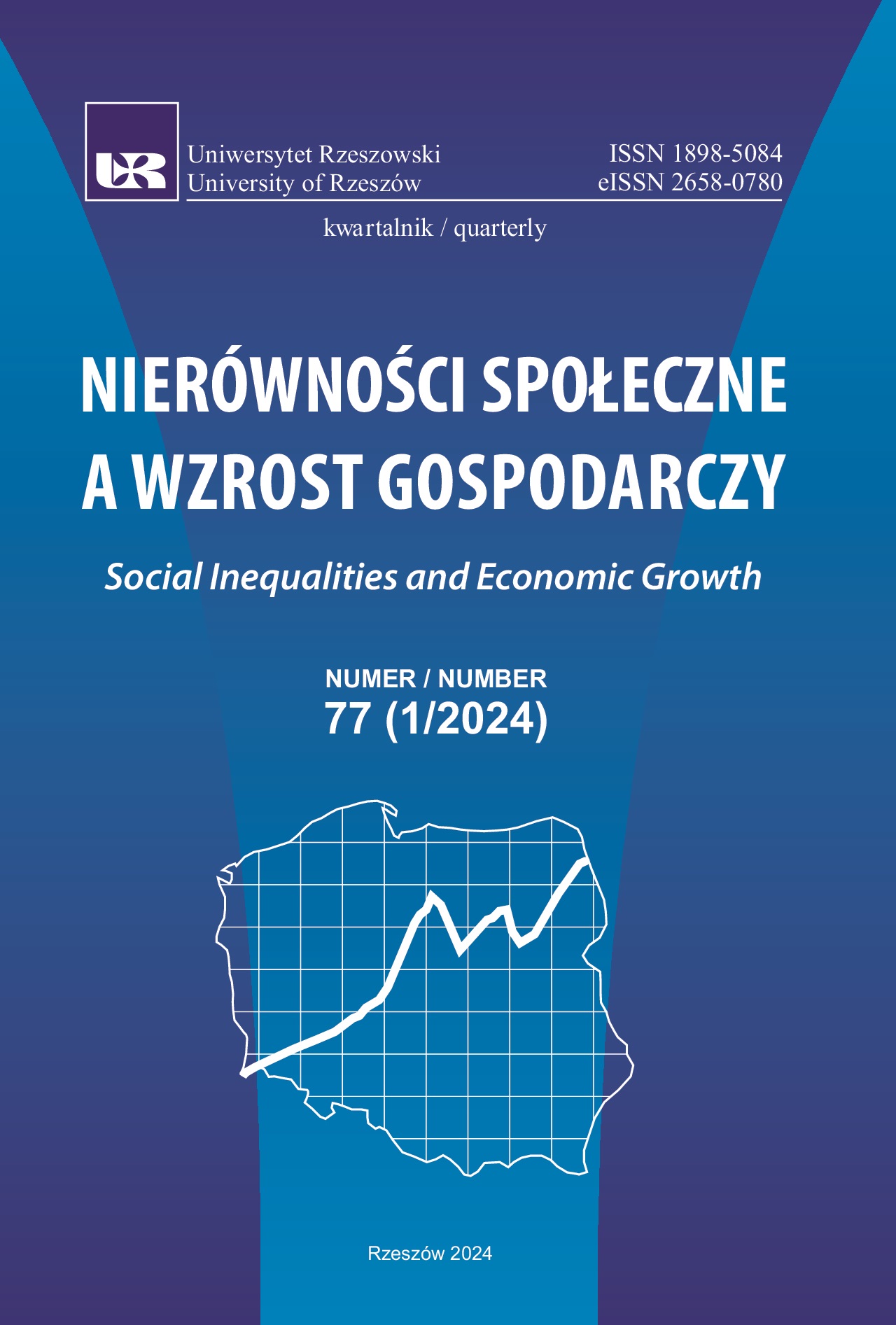Projektowanie zorientowane na potrzeby użytkownika (UX) jako element przeciwdziałania nierównościom społecznym w świecie technoglobalizacji
User Experience (UX) as an element of counteracting social inequalities in the world of techno-globalisation
Author(s): Agnieszka Miluniec, Ireneusz MiciułaSubject(s): Education, Social differentiation, Economic development, ICT Information and Communications Technologies, Globalization, Socio-Economic Research
Published by: Wydawnictwo Uniwersytetu Rzeszowskiego
Keywords: techno-globalisation; User Experience (UX); IT design; digital divide; knowledge diffusion;
Summary/Abstract: In the era of digital revolution and globalisation of technology, access to knowledge has become a key aspect of social and economic development. However, although the Internet offers potentially unlimited access to information, many people remain excluded from the benefits of this digital revolution. This research article examines how improving the user experience (UX) can contribute to breaking down barriers to knowledge diffusion and exclusion from digital techno-globalism. In the context of knowledge diffusion, the UX plays a key role in ensuring that the knowledge acquisition process is as accessible, understandable and user-friendly as possible. The article presents practical examples and UX design strategies that can help solve the challenges faced at the interface between humans and technology. The research hypothesis is that appropriate user-centred design (UX) plays a key role in counteracting social inequalities in the digital world by ensuring that the process of acquiring knowledge is accessible, understandable, and user-friendly. To confirm this, the research carried out used a review of global scientific literature and an analysis and interpretation of the case studies presented in the article. At the same time, practical considerations and experiences of digital technology products were used. However, based on the case studies discussed, the impact of personalisation, accessibility and understandability on creating more inclusive solutions is described. At the same time, current research directions and open research issues and trends are discussed
Journal: Nierówności Społeczne a Wzrost Gospodarczy
- Issue Year: 2024
- Issue No: 77
- Page Range: 163-178
- Page Count: 16
- Language: Polish

